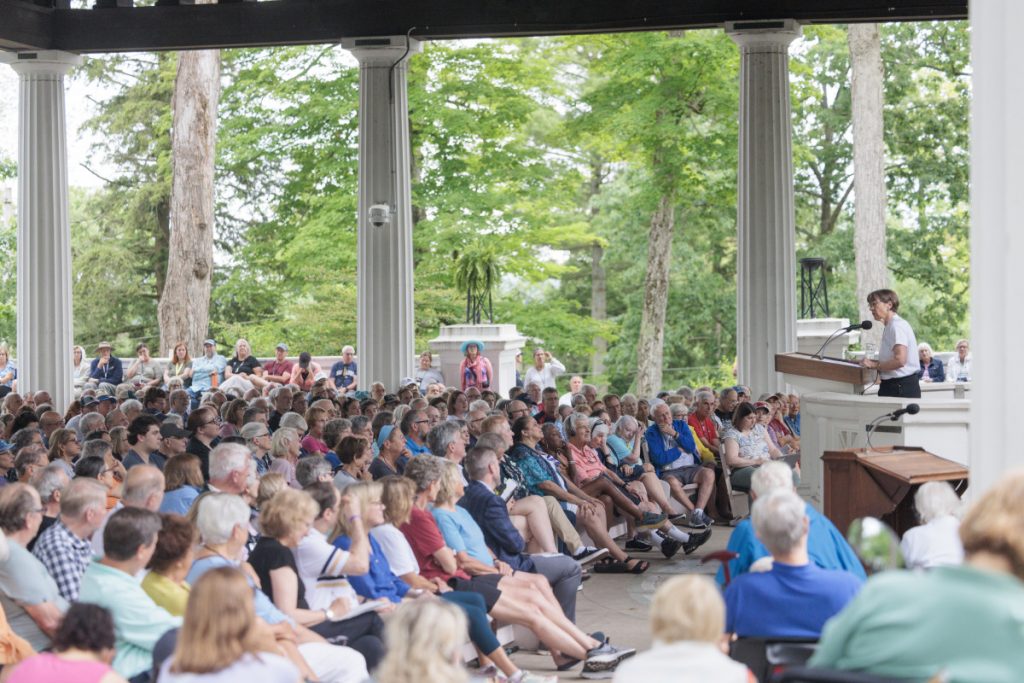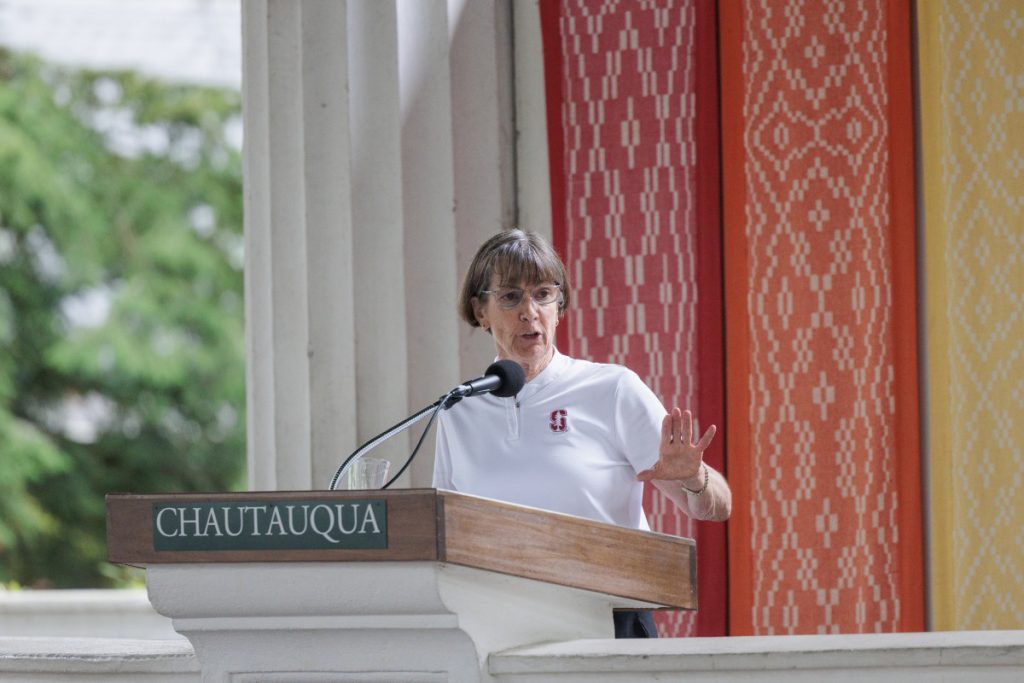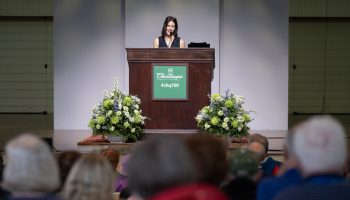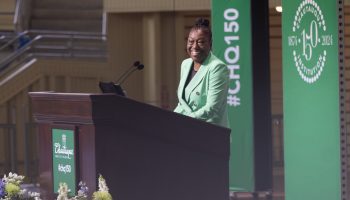
Sara Toth
Editor
Why, Tara VanDerveer wondered Monday afternoon, would a basketball coach deliver the opening talk of a week for the Interfaith Lecture Series?
Part of being a basketball coach is praying a lot, she admitted. But there was a broader reason.
“ ‘The Spirit of Play’ describes me,” VanDerveer said as she opened her lecture Monday afternoon in the Hall of Philosophy. “I love to play sports and games, and my career is coaching the game of basketball. My story is a love story.”
VanDerveer is the Setsuko Ishiyama Director of Women’s Basketball at Stanford University, where she’s been the head women’s basketball coach since 1985. An inductee of the Naismith Memorial Basketball Hall of Fame and the Women’s Basketball Hall of Fame, VanDerveer is the winningest coach in the history of women’s college basketball and the winningest active coach in men’s and women’s Division 1 basketball.

It’s a long list of bona fides that includes five-time national coach of the year, 17-time Pac-12 Coach of the Year, 14 NCAA Final Four appearances, 25 Pac-12 regular-season titles, 15 Pac-12 Tournament crowns and 34 trips to the NCAA Tournament.
But before the accolades and titles, VanDerveer was a Chautauquan, and it was here, in her youth, that she developed that love for, and spirit of, play.
Football, baseball, tennis, ping-pong — all were for the taking as a kid growing up outside of Schenectady, New York. Her childhood wasn’t just one of sports, but games, Scrabble and Bridge every Friday.
“My parents set the tone,” VanDerveer said. “… The favorite thing, for my dad, was going to the lake. The last day of school, he’d have the car parked facing out. You could come home, change your clothes, use the bathroom, and get in the car. We would eat on the way to the lake. In 1962, this was the first time our car took us to Chautauqua.”
The first thing her parents did at Chautauqua? Sign VanDerveer up for Boys’ and Girls’ Club. She made lasting memories; more importantly, she made lasting friends — Chautauquans she called by name from the podium, remembering the hours of canoing, sailing, playing capture-the-flag.
Bridging the Week One themes dedicated to friendship, to the Week Two themes on games and play, VanDerveer said that “sports is such a connector. You love to play with the people that you’re close to. And so teams that are really bonded, play better.”
VanDerveer would know, and over the course of her lecture she took her fellow Chautauquans on a journey through the moments in her professional career — from the 37 words of Title IX that “changed the trajectory of (her) life” to her gold medal turn as coach of USA Basketball at the 1996 Olympic Games — and what those moments (and Chautauqua) have taught her.
“Do you know what the number one thing is on recruit lists? If they’re looking at Stanford and they’re looking at other schools, what is the number one thing that they want?” VanDerveer prompted the audience. “Take a guess at what they will say is number one. Winning? No. Volunteering? No. Friends. They want relationships.”
In an age of rampant technological growth and the rise of social media, people want friends; sports and games are “a big part of helping develop that teamwork, learning to trust in more than ourselves, (in something) bigger than ourselves.”
The first year VanDerveer came to Chautauqua — 1962 — happened to be the first year that she played basketball in gym class at her school. She was hooked. But a girls’ basketball team didn’t exist. She had to play alone.
“I’d imagine I was taking the winning shot or winning free throw. … It was pure fiction because that was not happening,” she said. “My parents would call me into the house and say ‘Tara, basketball is never going to take you anywhere. Do your algebra homework.’ (But) I knew algebra wasn’t taking me anywhere (either).”
VanDerveer, itching to get near the court in any way possible, became the team mascot instead. She was fired in two weeks; she wouldn’t stop taking the bear head off her mascot costume.
She became a “sponge,” she said, soaking up all she could from watching the boys’ practice, and in 1972 with the passage of Title IX, she finally had a team to join.
Summer basketball camps and coaching clinics prepped VanDerveer for her career. Over the years, she’s seen what hard work and deep relationships can do for a team.
“The teams that I coach that demonstrate great spirit of the game have certain characteristics,” VanDerveer said. “I think they’re hardworking. They’re dedicated. They’re disciplined. They’re unselfish. They’re team-first players. They’re resilient. Their losses build resolve and determination. They show gratitude. They have fun. And they have a sisterhood.”




